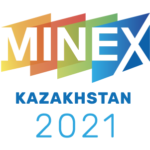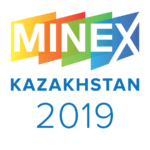
The MINEX Forum has been held in Kazakhstan since 2010 and is one of the most influential mining events in the Central Asia. Every year, the Forum brings together over 400 leaders from the national and international mining and exploration companies, ministries and other governmental organisations, investment funds and banks, service companies and equipment manufacturers.
More than 80 speakers from over 20 countries discuss at the Forum market trends, cases, and technologies which are shaping the development of mining and geological exploration in Kazakhstan and Globally.
MINEX Forum regularly hosts competitions to promote best cases and management practices in mining, exploration and ESG.
The Exhibition, held as part of the Forum, extends presentation, communication and business development opportunities for commercial companies, state and academic institutions.







